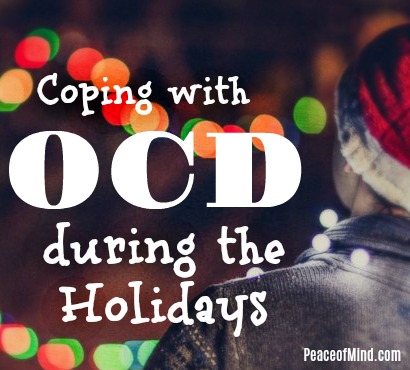
While the holidays are a joyful time, they also can be stressful, especially for those who live with obsessive-compulsive disorder. One Baylor College of Medicine expert discusses how to cope with OCD during the holidays.
“Like with any mental illness, certain symptoms of OCD are exacerbated during stressful times,” said Dr. Elizabeth McIngvale, assistant professor in the Menninger Department of Psychiatry and Behavioral Sciences at Baylor. “During the holidays, people are excited to be around other people, have meals together and do a lot of activities that they might not normally do, which can cause unexpected triggers.”
McIngvale said this busy time and heightened stress may result in less sleep and a decrease in taking care of your mental health, like postponing important  doctors’ appointments.
doctors’ appointments.
Some coping tips that McIngvale recommends for those with OCD include:
Not letting treatment slip aside. Staying up-to-date on your treatment should be your No. 1 priority even during the holidays, so do not let shopping and other holiday activities get you off track.
Finding time for yourself. If you need to take a short break from being around other people, you can take a walk, eat a meal by yourself, turn off your phone for an hour or watch an episode of your favorite television show.
Trying to push yourself out of your comfort zone a little bit. Often people with mental health issues withdraw and isolate themselves, especially around the holidays, because they do not feel comfortable around their family or they do not feel wanted. However, that is not helpful and in the long run, can create depression and increased anxiety. For someone with OCD, the more they stay at home and are not involved in social activities, such as work or volunteering, the more their OCD symptoms worsen.
For family members who are concerned that their loved one might be struggling with OCD, McIngvale said to be on the lookout for the following signs:
Increased time in the bathroom, increased washing rituals and/or cleaning rituals. These can be repetitive rituals that include long amounts of time in the shower or long amounts of time washing or cleaning hands.
Hands that are cracked, raw, bloody or very dry.
Lots of reassurance-seeking. This can mean asking questions repetitively that are unnecessary but are being asked in an attempt to feel better or to have a reduction in anxiety. It may seem like the person with OCD is asking the questions to seek approval or they may seem like they are confessing something.
“Just remember to take good care of yourself and you’ll be able to enjoy the holidays,” McIngvale said.
See Original Article – Baylor College of Medicine

